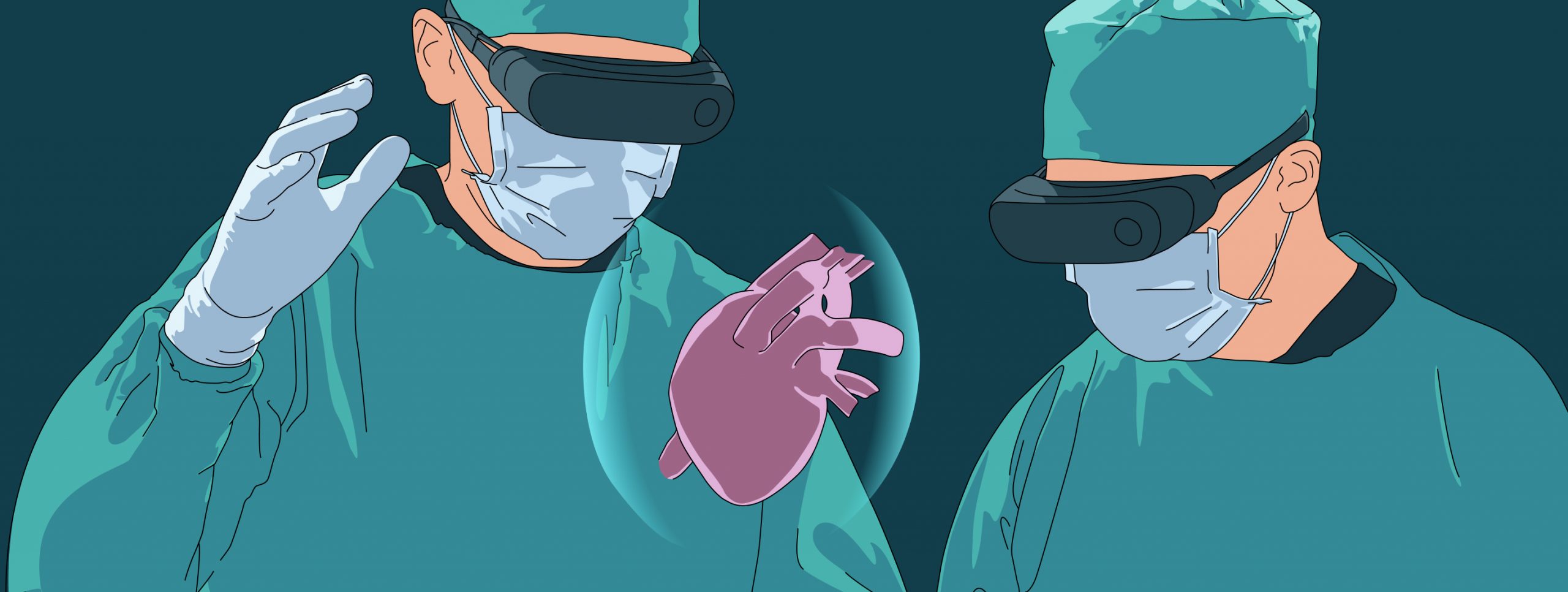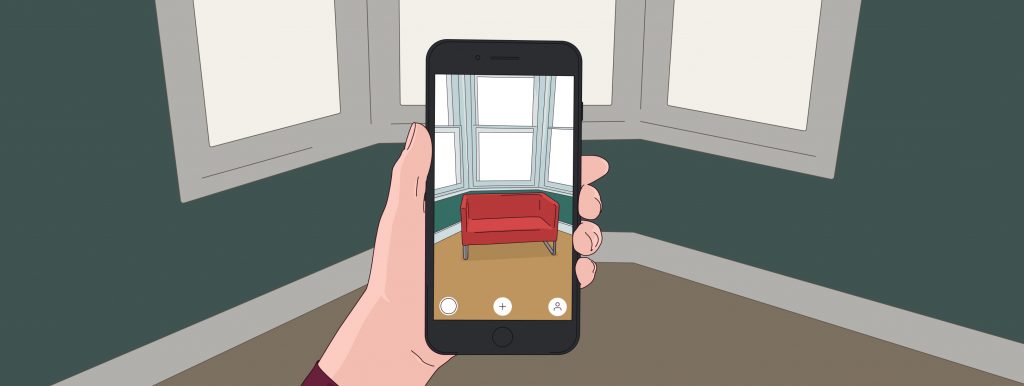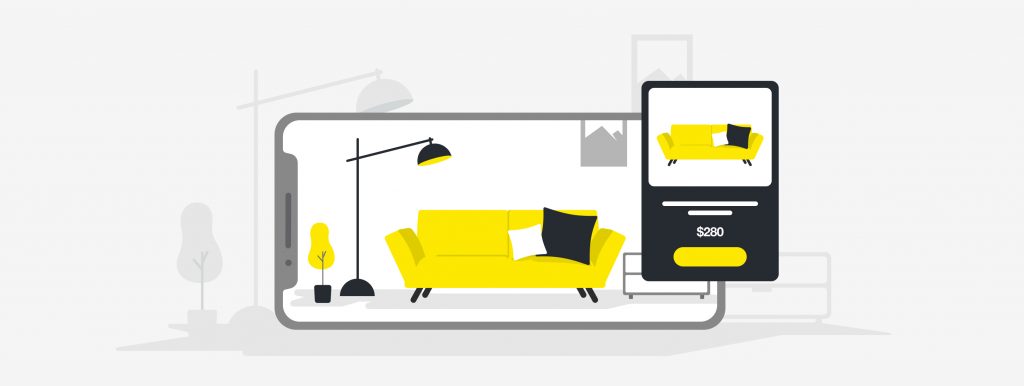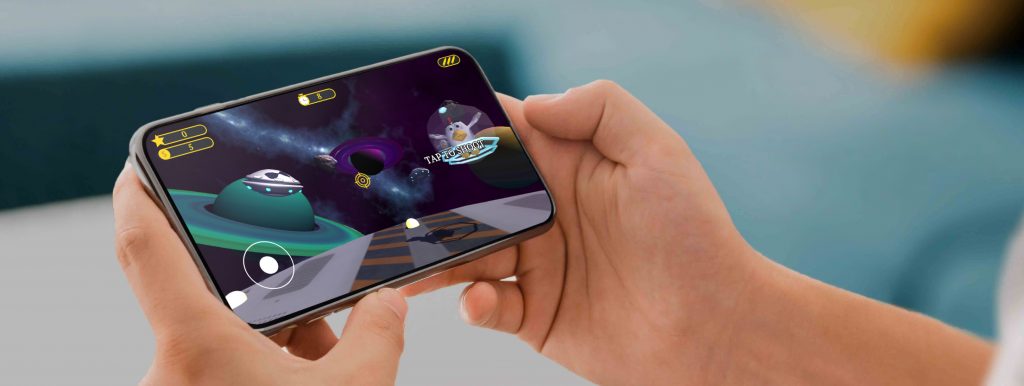Virtual Reality immerses users in a three-dimensional computer environment and allows them to interact with the virtual world. This technology is most often associated with entertainment, but VR also opens up new prospects and opportunities for Education, Design, Architecture, Retail, and Healthcare.
Today, Virtual Reality is becoming increasingly widespread in the healthcare sector: according to the Goldman Sachs Global Investment Research, healthcare is among the top 3 industries that will remain leading adopters of VR technology up to 2025. How can you apply Virtual Reality in healthcare?
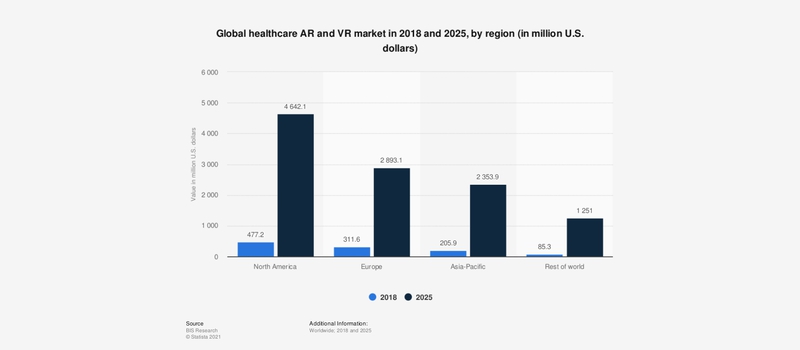
How Virtual Reality improves healthcare
Virtual Reality plays an important role in the healthcare industry, providing patients with more convenient and efficient medical care. This technology is used to assist surgeons, doctors, and nurses in their work. So, how can the use of VR make healthcare more accessible?
- Enhancing Medical Education
One of the most important points of improving medicine and making healthcare more accessible is a correct and immersive approach to teaching future medical specialists and training practitioners.With the help of VR, students have access to study any parts of the human body from multiple angles and consider those areas that would otherwise be impossible to reach.Virtual Reality also creates training scenarios that repeat conventional surgical procedures and teaches users to communicate with virtual patients whose behavior can be changed for various training purposes.Thus, VR helps to improve the training of medical students and allows practitioners not to lose their skills. It means that doctors become more competent and make medicine more effective and accessible. - Raising Awareness About Diseases
The use of Virtual Reality allows medical professionals and other people to get a previously inaccessible experience of feeling sensations and emotions of patients who are faced with various diseases.For example, with the help of a VR headset, users can see how a person suffering from Parkinson’s moves around the store and faces awkward moments when contacting other people.Moreover, as part of advertising the remedy, a company allowed people to choose their migraine symptoms and then hand over a Virtual Reality headset to a non-migraine partner.Thus, this approach allows doctors and other people to better understand patients and find new ways to help them. - Improving Patient Treatment
Virtual Reality has made most of the innovative medical procedures available. For example, the ability to view the human body in detail is useful not only for doctors but also for patients.VR allows you to create a patient-specific 360-degree reconstruction of the anatomy and demonstrate to patients the surgical plan of their operation. This approach helps you improve the understanding of treatment and ensure the trust of patients.Virtual Reality can also be used to conduct psychological therapy for patients, regardless of their location. For example, the technology allows you to create scenarios when patients face psychological difficulties, such as a crowded shopping center, a flight, or painful events, even when sitting on their bed.With the help of such coaching, patients can not only work through their problems but also combat their memory loss.In addition, virtual reality is also used to reduce physical pain. A study conducted by the University of Washington Seattle and the UW Harborview Burn Center showed that virtual reality allows patients who undergo physical therapy after a skin transplant to distract themselves and reduce the level of pain.
Benefits of VR in healthcare
Virtual Reality is a powerful tool that contributes to improving the accuracy and efficiency of medical procedures, as well as expanding the opportunities of medical students, doctors, and patients.
Thus, every year the potential of virtual reality in the healthcare sector is only gaining momentum and provides new opportunities and ways to make medicine more accessible.
Exposit develops VR-driven healthcare solutions to improve the accuracy of medical processes and enhance higher patient satisfaction. Contact us if you would like to discuss how we can bring your Virtual Reality Healthcare project to life.
